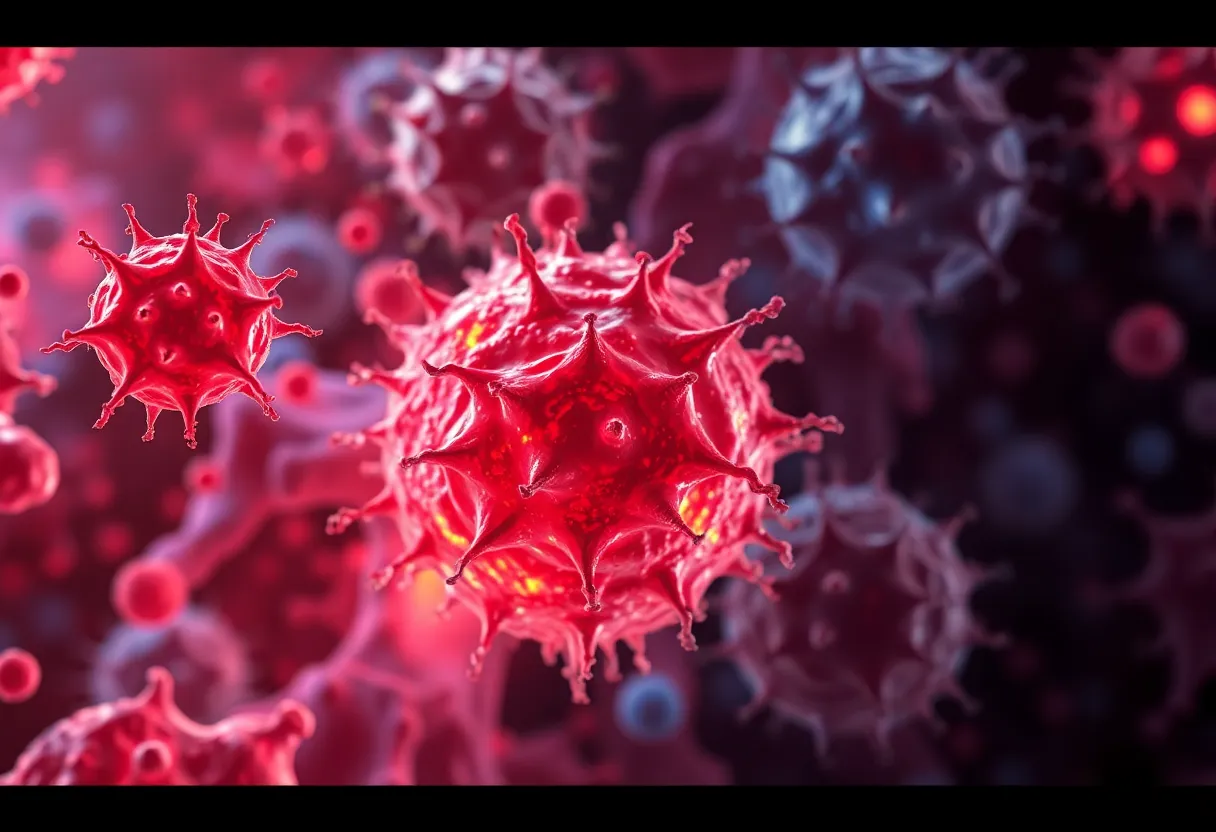News Summary
Researchers from leading US institutions have made a groundbreaking discovery in mesothelioma research, identifying a new type of cell termed ‘uncommitted.’ This finding could transform our understanding of tumor composition and evolution, particularly in biphasic tumors. The study highlights the complex interactions of various cell types, which could lead to targeted therapies and improved patient outcomes in mesothelioma treatment.
The Latest Breakthrough in Mesothelioma Research Unveils New Cell Types
In a groundbreaking study, researchers from some of the most prestigious institutions in the United States have made significant strides in understanding the complex world of mesothelioma, a deadly cancer primarily caused by asbestos exposure. This innovative group, which includes experts from Brigham & Women’s Hospital, Harvard Medical School, MIT, and Massachusetts General Hospital, embarked on an in-depth analysis of diverse mesothelioma cell types. Their goal? To unravel the mystery behind the variation present in pleural mesothelioma tumors.
A New Type of Mesothelioma Cell Discovered
During their intensive study, researchers identified a new type of mesothelioma cell they have termed “uncommitted.” This discovery is particularly notable as it was found predominantly in biphasic tumors, which combine characteristics of both epithelioid and sarcomatoid mesothelioma. While medical professionals and researchers were aware of the existence of subtypes of mesothelioma—specifically epithelioid, sarcomatoid, and biphasic—this study sheds light on the presence of a new variant among the malignant cells themselves, thus changing the landscape of mesothelioma research.
Understanding Tumor Composition
The study conducted a thorough multi-site analysis that focused not only on the mesothelioma cells but also the diverse microenvironments surrounding these cells. By delving into the factors that influence tumor progression and variability, researchers aimed to gain a clearer understanding of mesothelioma at a cellular level.
One of the noteworthy findings from the research pointed to the composition of the new uncommitted cell type. It was determined that these cells typically exhibited a rich population of fibroblasts while being deficient in macrophages. This suggests a unique role that uncommitted cells may play in the tumor environment and highlights the complex interactions between different cell types within mesothelioma tumors.
Significant Implications for Patient Care
Importantly, the authors of the study discovered that tumor samples with a higher fraction of uncommitted cells often contained similarly sized populations of committed epithelioid and sarcomatoid cells. Conversely, tumors characterized by a dominance of either the sarcomatoid or epithelioid populations revealed a lower fraction of uncommitted cells. This interplay could hold vital implications for understanding how mesothelioma tumors evolve.
Drivers of Proliferation Uncovered
By identifying specific drivers of cell proliferation expressed by both malignant mesothelioma cells and their surrounding microenvironments, researchers have opened the door to a deeper understanding of tumor dynamics. One of the key revelations from this analysis is that as tumors produce new cells, these can manifest across all three subtypes, transcending their original lineage. This paradigm shift underscores the fact that, while genetic factors contribute to the development of mesothelioma, changes can occur independently of mutations, thereby complicating conventional treatment pathways.
Hope for Future Treatments
The findings from this comprehensive research present a promising avenue for developing targeted therapies for mesothelioma. As scientists continue to decode the molecular mechanisms underpinning this disease, the potential for identifying effective treatment options grows stronger. With a deeper understanding of mesothelioma cell types and their behaviors, researchers hope to pioneer new methods that could significantly improve patient outcomes.
For those who have been diagnosed with mesothelioma, access to the latest research and qualified expert assistance is paramount. Resources such as Mesothelioma.net offer valuable information and support for patients seeking additional guidance and treatment options.
As the study concludes, the mounting evidence will inspire future research efforts, ensuring that the fight against mesothelioma continues with heightened vigor and precision. The journey to uncover the complexities of this disease may pave the way for life-saving advancements in oncology.
Deeper Dive: News & Info About This Topic
HERE Resources
Infrastructure Crisis Looms Over Corpus Christi Elementary Schools
Groundbreaking Clinical Trial Offers New Hope for Mesothelioma
New Mesothelioma Cell Discovery Changes Cancer Understanding
Mesothelioma: Unraveling the Complexities of Life Expectancy
Breakthrough Drug Shows Promise Against Mesothelioma
Breakthrough Drug Offers New Hope for Mesothelioma Patients
Innovative Support for Mesothelioma Patients: A Comprehensive Approach
Revolutionary Study Unveils New Insights into Mesothelioma Treatment
Er-Kim Pharmaceuticals Partners with Polaris Pharmaceuticals to Tackle Mesothelioma
Context Therapeutics Launches Phase 1 Trial for CT-95 Antibody
Additional Resources
- Asbestos.com: Top Mesothelioma Hospitals Lead Best Cancer Hospitals List
- Wikipedia: Mesothelioma
- Mesothelioma Guide: Dr. Hassan Khalil
- Google Search: Mesothelioma Latest Research
- Mass Lawyers Weekly: Groundbreaking Mesothelioma Case Yields $39M Jury Verdict
- Google Scholar: Mesothelioma Research
- Texas Lawyer: $39M Jury Verdict Awarded in Novel Mesothelioma Case
- Encyclopedia Britannica: Mesothelioma



















